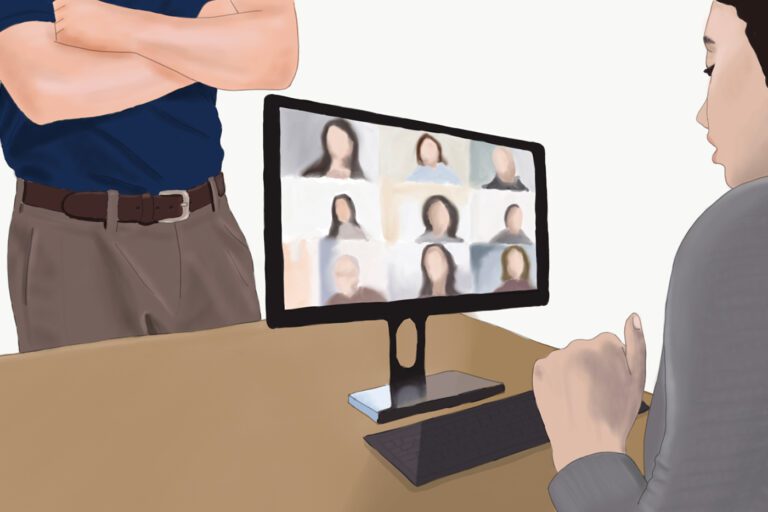Last March, as COVID-19 spread across the United States and lockdown policies were enacted, researchers and advocates working to prevent domestic violence noticed a strange trend.
“Right after the lockdown, we saw a sharp drop in people seeking help,” says Margo Lindauer, associate clinical professor of law and director of the Family Violence Institute at Northeastern University.
Margo Lindauer, director of the Family Violence Institute at Northeastern Law School. Photo by Ruby Wallau/Northeastern University
The same scene played out inside other parts of the country. Lindauer and her colleagues knew the drop in calls was not a good sign. This meant people weren't getting the help they needed.
Victims of domestic violence tend to seek help at community health centers, hospitals, religious organizations, homeless shelters, and schools. Many of these locations closed completely, or only opened sporadically, during the early phase of the pandemic lockdown.
“People didn't know how to access help or couldn't access help safely because they were living with their abusers or weren't allowed to leave,” says Lindauer, who holds a joint appointment at Northeastern University Law School. and at the Bouvé College of Health. Sciences.
In response to this new challenge, Lindauer and Morgan Wilson, a legal associate at the Family Violence Institute, have developed a variety of technological interventions to reach their clients. First, they created an intake form on their own Website, which is completed with an “escape site” button. This allows users to quickly exit the site at any time if they need to protect themselves from the watchful eyes of a criminal.
Wilson has also begun providing customers with comprehensive technology security education and training. As people around the world become increasingly dependent on technology, both for work and to stay connected with friends and family, there are more ways than ever for abusive partners to monitor, harass, manipulate, to control and spy on their victims.
“We have customers who say things like, 'I have no idea how this person got into my Facebook account. I changed my password.' But they're using a shared home computer and there might be a keylogger or some other kind of spyware or malware,” Wilson explains, referring to computer software that can be installed to record keystrokes and other data. She educates her clients on tools they can use to better maintain their privacy, such as messaging apps like Signal or Whatsapp that allow messages to disappear.
Wilson also recommends “vault apps,” such as KeepSafe or Gallery Lock, to her clients. At first glance, these may appear to be simple calendar or calculator apps, but when the user hits a code, the app enables secure and private storage of files, photos, and messages.
“The app is innocuous on its face, so if an abuser looks at your phone, they won't immediately know what it is,” says Wilson. These are just a few examples of the greater safety technology training Wilson has provided to more than 100 customers since July.
The pandemic has also exacerbated the need for victims of domestic violence to access safe and stable housing. In response, Lindauer reached out to her network, many of whom are former Northeastern students, and raised more than $150,000 to house eight different families in hotels for one to three months at a time.
“We know that when people are safely housed, they are able to think more clearly about their options and make decisions not out of fear or trauma, but based on what's in their best interest,” says Wilson.
In a perspective paper was published on New England Journal of Medicine, Lindauer and her colleagues write that intimate partner violence during COVID-19 is a “pandemic within a pandemic.” And while domestic violence affects everyone, Lindauer says research has shown that BIPOC (Black, Indigenous and Color) communities and other marginalized people tend to be disproportionately affected. These are also the groups that have experienced the greatest job losses and health problems during the pandemic.
“Both in terms of the lives that have been lost to the infection of COVID-19, but also those who are dealing with the harsh reality of domestic violence and who have lost jobs and are dealing with unemployment—they are all the same people,” says Lindauer.
For media inquiriescontact media@northeastern.edu.



